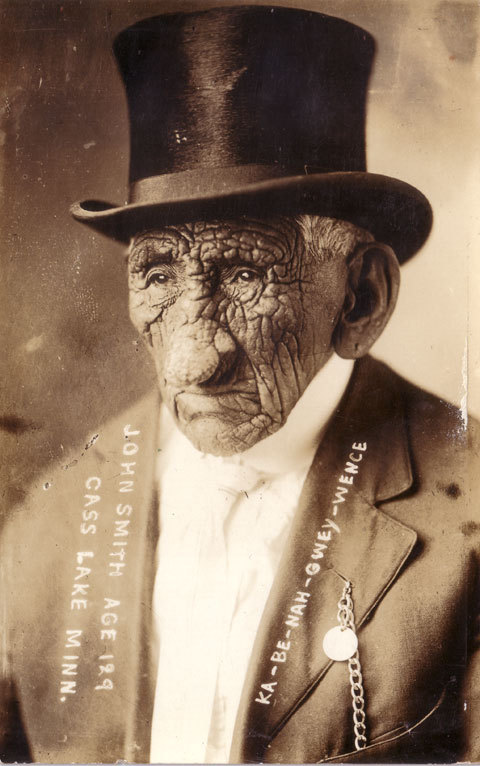Obvious-Backed Branch Comes Out Of Public Beta To Foster Conversations Online | TechCrunch
http://techcrunch.com/2012/08/13/obvious-backed-branch-comes-out-of-public-beta-to-foster-conversations-online/
(via Instapaper)
Obvious-Backed Branch Comes Out Of Public Beta To Foster Conversations Online | TechCrunch
http://techcrunch.com/2012/08/13/obvious-backed-branch-comes-out-of-public-beta-to-foster-conversations-online/
(via Instapaper)

This photo of John Smith (Ka-Be-Nah-Gwey-Wence), a Chippewa Indian from Cass Lake, Minnesota, was taken when he was supposedly at 129 years old. Sold on eBay for $29.95.
Ka-Be-Nah-Gwey-Wence at 129 years old

Gizmodo's Brent Rose reviews the TheraPik, a $13, ugly, plasticky bug-bite zapper that actually works really well. It heats up your mosquito (and other critter) bites until the venom's proteins break down, and the itching and swelling disappear.
Using It
You put the tip of the Therapik onto your bug bite, then you press and hold down the button. The tip uses light to heat the bite up. You hold it there for as long as you can take it, up to a minute. The burning sensation gets pretty intense after 30 seconds or so.
The Best Part
It actually works! Mosquito bites (the only thing we tested it with) stopped itching within a few seconds of taking it off, and in most cases they never itched again. We are officially stunned.
Therapik Bug Bite Relieving Gadget Review: We Can't Believe This Actually Works

Cut the tops off about 10 oranges and scoop out the pulp. Fill the oranges three-quarters of the way with chocolate cake batter (cake mix works fine), then put the orange tops back on and wrap each orange in aluminum foil. Place directly onto the smoldering coals of the campfire, avoiding any intense flames, and cook for about 30 minutes, turning once or twice.I've had sorbet served in an orange and pate served in an orange (AKA "meat fruit). Both were delicious. You could probably do a whole meal inside of citrus peels.
I foresee the range of blackmail material to narrow considerably, already for celebrities sex videos are more of an oops than anything really damaging and I expect this probably to extend to politicians gradually.Is this actually true?
Understanding the Dangers of "Ego-Depletion"
http://www.fourhourworkweek.com/blog/2012/08/12/understanding-the-dangers-of-ego-depletion/
(via Instapaper)
[Toward a radical reading of the clicktrance. -egg]
INCUBATE-special: Exclusive essay 'Time-wars' by Mark Fisher | Gonzo (circus) | Tijdschrift over vernieuwende muziek en cultuur
http://www.gonzocircus.com/xtrpgs/incubate-special-exclusive-essay-time-wars-by-mark-fisher/
(via Instapaper)
